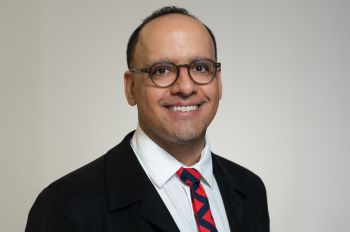Experts Available to Discuss Qualified Immunity, Justice in Policing Act and Supreme Court Cases Involving Police Misconduct

Global protests against police brutality in the wake of George Floyd’s death have sparked a discussion on police accountability including a reexamination of qualified immunity protections.
Qualified immunity shields all government officials from personal liability for constitutional violations unless a victim can prove that the official violated “clearly established” law. This requirement generally means that the officer is immunized unless the victim can point to an earlier case in which the Supreme Court or a federal appeals court in that jurisdiction found virtually identical actions unconstitutional. Critics of qualified immunity say that this requirement allows egregious misconduct to go unaddressed, deprives victims of compensation, and stymies the development of the law.
Congressional Democrats introduced the Justice in Policing Act on June 8, which proposes changes to the legal standards for qualified immunity, a ban on chokeholds, and expanded oversight of police agencies by attorneys general and the Department of Justice. The bill also proposes a national registry to track police misconduct, as well as other reforms.
Meanwhile, eight cases that examine the doctrine of qualified immunity are pending before the United States Supreme Court, some of which are supported by a broad cross-ideological coalition of organizations. The court may announce as early as this week whether it is accepting any of these cases for oral arguments later this year.
Chicago-Kent College of Law faculty members have decades of research and legal experience on issues of qualified immunity, police misconduct, and Section 1983 law. Our experts weighed in with their first impressions of the Justice in Policing Act and the likelihood of the Supreme Court taking up one or more of the pending qualified immunity cases.
All are available for media interviews this summer.
Sheldon Nahmod, civil rights and liberties and Section 1983 expert
Sheldon Nahmod, University Distinguished Professor Emeritus, is the author of Civil Rights and Civil Liberties Litigation: The Law of Section 1983 and A Section 1983 Civil Rights Anthology. He has successfully argued civil rights cases in the Supreme Court and the First, Seventh, Eighth, and Tenth Circuits. Nahmod also organizes and lectures at the law school’s national annual conference on Section 1983, which is now in its 37th year.
Nahmod said the Justice in Policing Act will make it easier to convict a state or local law enforcement officer who violates the constitutional rights of citizens by lowering the required state of mind from “willfulness” to “knowledge” or “deliberate indifference.”
“Section 102 of the Justice in Policing Act eliminates qualified immunity as a defense to Sec. 1983 damages liability of state and local government law enforcement officers personally. This is major because five justices of the Supreme Court have increasingly (and unconstrained) interpreted and applied qualified immunity in such a way as to create officer impunity, even when those officers have used excessive force causing death,” Nahmod said.
“The Act, however, does not go far enough. It should also make state and local governments liable in damages under Sec. 1983 whenever their law enforcement officers violate citizens’ constitutional rights, especially when they use excessive force, and regardless of whether this leads to death. This would create extra incentives for states and local governments to better train their law enforcement officers.”
Carolyn Shapiro, Supreme Court scholar and appellate lawyer
Carolyn Shapiro, associate professor of law and co-director of the Institute on the Supreme Court of the United States, focuses her research on the Supreme Court, its relationship to other courts and institutions, and its role in our constitutional democracy. She served as Illinois Solicitor General and has argued cases in the U.S. Supreme Court, the Seventh Circuit, the Illinois Supreme Court, and the Illinois Appellate Courts. Shapiro has also argued cases involving police misconduct, including representing Michael LaPorta. LaPorta was shot in the back of the head by Chicago Police officer Patrick Kelly, a childhood friend, after a night of drinking in 2010. Kelly was off-duty at the time.
“The doctrine of qualified immunity shields police officers from liability and denies justice to those whose constitutional rights have been violated, even in egregious and violent ways. Courts have, for example, recently granted immunity to police officers who shot a 10-year-old child lying on the ground while trying to shoot a pet dog that was not presenting a threat, to officers who shot tear gas canisters into a private home, and to officers who sicced a police dog on a suspect who had surrendered and was sitting on the ground. The doctrine was invented by the Supreme Court, and the Supreme Court could change it, but the Justice in Policing Act would be a more effective way to eliminate it,” Shapiro said.
“Some justices might be inclined to take one or more of these cases to narrow but not to eliminate qualified immunity, on the theory that doing so would make it less likely that Congress would enact the Justice in Policing Act. On the other hand, Justice Thomas has already questioned whether qualified immunity has a justifiable doctrinal basis, and all of the justices are watching the same news as the rest of us, so some may feel that it's time for a more significant change. Most likely, however, I think that the introduction of the Justice in Policing Act, along with the new popularity of the idea of eliminating qualified immunity in Congress, will allow the court to feel that they don't need to do anything right now.”
Judge David Erickson, former prosecutor and appellate court judge
Judge David Erickson is director of Chicago-Kent’s Trial Advocacy Program and co-director of the program in criminal litigation. Erickson served as an assistant state's attorney under former state's attorneys Bernard Carey and Richard M. Daley, and from 1996 to 2001 was first assistant state's attorney in Cook County. He is a retired justice of the Illinois Appellate Court, First District, and has acted as a consultant for the Illinois Attorney Registration and Disciplinary Committee and private law firms regarding 1983 civil rights litigation.
“I believe reform is needed. But I am not in agreement that the doctrine of qualified immunity is the real issue,” Erickson said. “Enforcement by the justice department, if done aggressively, has been very successful. Eliminating qualified immunity for police and prosecutors will not stop those overly aggressive police and prosecutors from violating citizens' constitutional rights; very few even know they have it. The solution is better training, more inclusion, and diversity, as well as changing the mental state requirement to make it easier to charge or sue.”
Richard Kling, defense attorney
Richard Kling, professor of law, has tried hundreds of murder cases, including 18 capital cases, and continues to have an active criminal practice in state and federal courts around the country. From 1976 to 1981, Kling was a member of the Special Homicide Task Force in the Cook County Public Defender's Office. He is regularly quoted and interviewed by local and national electronic and print media regarding cases in which he is involved and other cases of note, as well as regarding general criminal justice issues.
“The Justice in Policing Act, which amends the provisions that have led to the dismissal of ‘civil rights’ lawsuits by such citizens, appears to be a significant step in the right direction to protect the civilian population from police misconduct and insure that if the police do engage in misconduct there is a vehicle for making sure that they are held accountable,” Kling said.
CONTACT: Interview requests for these legal experts can be sent to Jamie Loo, communications manager, jloo1@iit.edu or by phone at 312.567.3147.



